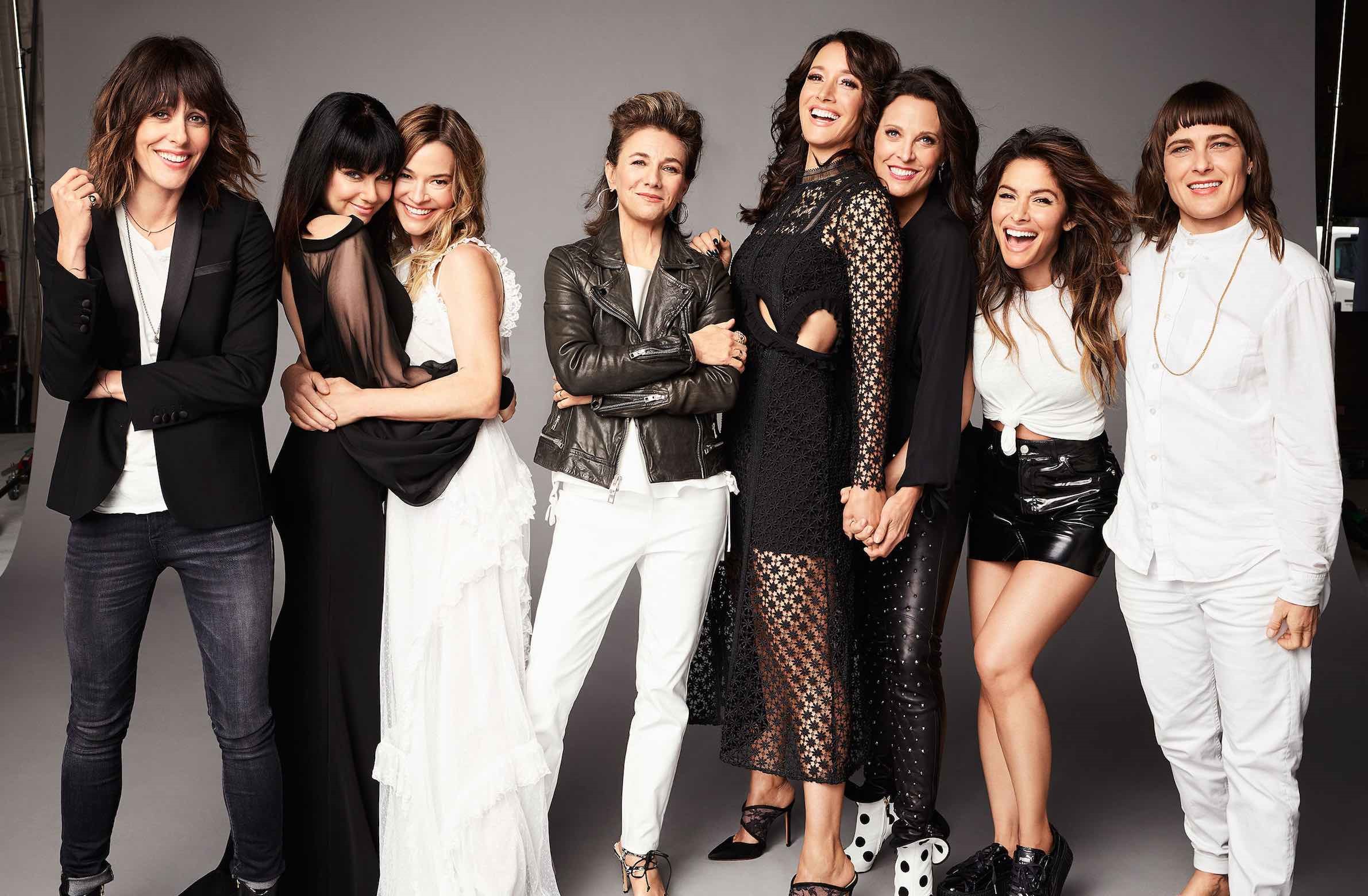I delved into watching The L Word: Generation Q with little knowledge of the original series which aired in America on Showtime. Now after 10 years, The L Word is back as a new, diverse reboot. After binge watching the series through Sky Go, I familiarised myself with the previous 1-6 seasons and characters. I can now say that previous knowledge is not necessary to understand the series, however it does help. When it comes to lesbian television, as a queer woman myself, I have mostly steered away from it due to the usual melancholic tone associated with queer plotlines. The closest to The L Word that I had seen before, was a much grittier British version about a group of gay women in Glasgow. Whereas, The L Word focuses on the lives of a beautiful group of lesbians in sun-kissed Los Angeles.
The reboot is based around 3 of the original cast members; Bette Porter who is running for LA mayor, Alice who is running her new TV chat show, and Shane who is struggling with a recent separation. The older characters’ struggles becomes intertwined with the new generation members, including Finley who is trying to find her ‘gay’ way around LA, Dani and Sophie who struggle to keep their relationship afloat while Dani works on Bette’s campaign, and even a new trans character, Micah. Even though each character has a personal struggle, the story still centres around lesbian and queer life in Los Angeles.



“The L Word wants to overcome and replace the backwards history of lesbians with a sunny and optimistic vision of gay women.”
Halberstam, J., & Halberstam, J. (2011). The queer art of failure. Duke University Press.
Overall, I thoroughly enjoyed watching a show revolved around queer woman with so much complicated lesbian drama. Rather than the new series focusing on the past haunting the old L Word characters, they are tasked with new challenges and wider questions surrounding their identity. For example, (spoiler alert) Alice going into an open relationship with her girlfriend’s ex-wife in order to create peace between the three of them. I found this to be an interesting topic, especially with the show exploring perceptions about queer people being linked to a lack of monogamy. These broader questions about queerness and relationships in the modern age are explored throughout the series. I fell in love with Bette Porter, and ended up feeling cheated that Bette and Dani did not end up together as Dani is the similar, but younger workaholic that Bette used to be. There were a few stories I did not feel we’re fleshed out enough, such as Micah contending with public backlash surrounding his transition as well as his own personal struggles with it. I felt the story was placed there in order to diversify the new series, which, although I believe that is important, I didn’t find myself as enticed with the storyline. When it comes to diversifying reboots, I think the new mini series based off of Tales of The City, handled trans storylines with far more depth. However, I enjoyed watching a fresh new series that satisfied both The L Words’ older generation audiences and brought in new fans, such as myself. The L Word attempts to re-imagine lesbian and queer women’s television with this blissful, Californian backdrop yet what it actually shows (from the reboot and even more with the original) is the darker reality of being queer in a contemporary age. Jack Halberstam sums it up in his book ‘The Queer Art of Failure’ (2011): “The L Word wants to overcome and replace the backwards history of lesbians with a sunny and optimistic vision of gay women”.
Despite its occasional cliché moments, the relationships between the characters and the dramatic storyline offers a sense of simple escapism in a time needed more than ever. The short series does not finish with a definite ending, leading me to hope that there is more to come.
The L Word: Generation Q – Available in the UK on Sky Atlantic and to stream on Sky Go.

